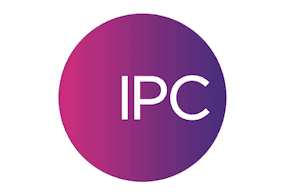The global FX ecosystem is renowned for its increasing complexity due to the rapid proliferation of counterparties, service providers, execution platforms, and products. IPC’s customers continually seek a more integrated trading infrastructure that connects all participants in the transaction lifecycle – buy-side firms, sell-side platforms, exchanges and liquidity providers, clearing/settlement systems, market data providers et al.
 Yet, these same participants may not have the resources or inclination to invest directly in ‘connecting the dots’ themselves. Many of these firms are interested in managed service solutions to provide the services they want to deliver, without the cost and burden of building and managing the operational infrastructure themselves.
Yet, these same participants may not have the resources or inclination to invest directly in ‘connecting the dots’ themselves. Many of these firms are interested in managed service solutions to provide the services they want to deliver, without the cost and burden of building and managing the operational infrastructure themselves.
Today, Platform as a Service, Network as a Service, Cloud as a Service and Trading as a Service models are used alone (and in combination) to deliver sophisticated and effective managed FX solutions.
There is particular interest in ‘Cloud as a Service’ FX solutions; industry research (including our own) indicates that a significant proportion of market participants expect FX trading flows to be either entirely in the cloud, or in some form of hybrid cloud/on premise solution, by 2025. It’s not just a question of scale benefits – other drivers of cloud adoption include reduced investment in technology and infrastructure, ease of integration, ability to customise, and accessibility for distributed workforces.
Technology innovation enables almost any aspect of FX workflow to be delivered as a managed service, from price discovery through to post-trade reporting. Provider-agnostic service delivery and platform independence also allows firms to move application delivery environments around, depending on changing performance, compliance, and geo-political factors. This is, of course, much harder and costlier with in-house or single vendor FX trading ecosystems – they are simply not agile enough.
The ability of trading firms to be able to trade anytime, anywhere, from any device – and in a secure and compliant manner– has enormous competitive advantages. From a compliance perspective, remote access to secure trading networks must be subject to the same levels of security and rigour with respect to surveillance, data capture, and recording as a physical trading environment. This is possible through “Desktop as a Service” solutions in the form of high-performance virtual desktops with integrated trading apps, accessible from any data centre or public cloud.
By leveraging managed ‘as a service’ models, firms can deploy and execute sophisticated cross-asset class trading strategies at pace, with rapid market connectivity, enabling them to realise speed-to-market benefits and to optimise returns. As well as more efficient market connectivity and access, firms can also benefit from fast and efficient onboarding of new providers, asset classes, and customers.
In the 4.0 technological age, and with an increasingly tech-savvy demographic occupying traditional trading roles, product and service differentiation must tick new -– and many -– boxes beyond efficient market access. Managed service solutions enable market participants to easily shop around, enabling freedom of choice and unfettered access to best-of-breed components in the trading stack.
For the FX industry, managed services may be the catalyst for businesses to completely rethink the way that they access and manage high-cost, high-maintenance operational resources, data storage and distribution and client connectivity and engagement. They may also be a ‘gateway technology’ for big data management AI/ML and accelerated digital transformation.
To deliver real value, however, managed service providers must not only connect all parties in the FX trading ecosystem, but they must also deliver trading and data processing efficiencies which assure performance and compliance at every point in the end-to-end transaction lifecycle, consolidating data from and between multiple sources and delivering it with seamless technological, workflow integration, and interoperability.
